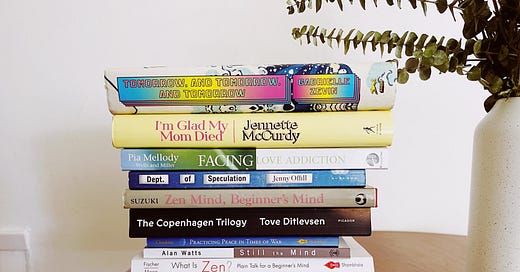This summer I read a lot of books, mostly because that’s what I like to do and because it’s part of my work, and as per usual, I make the disclaimer that if my glutenous reading habits make you feel like you aren’t doing enough, please consider I am a childless, single, bookish lady who at least half of the time prefers the company of herself, who chooses books over nearly every other hobby that could potentially be chosen. See this footnote1 for throat-clearing, disclaimers, and category definitions.
© 2025 Holly Whitaker
Substack is the home for great culture




